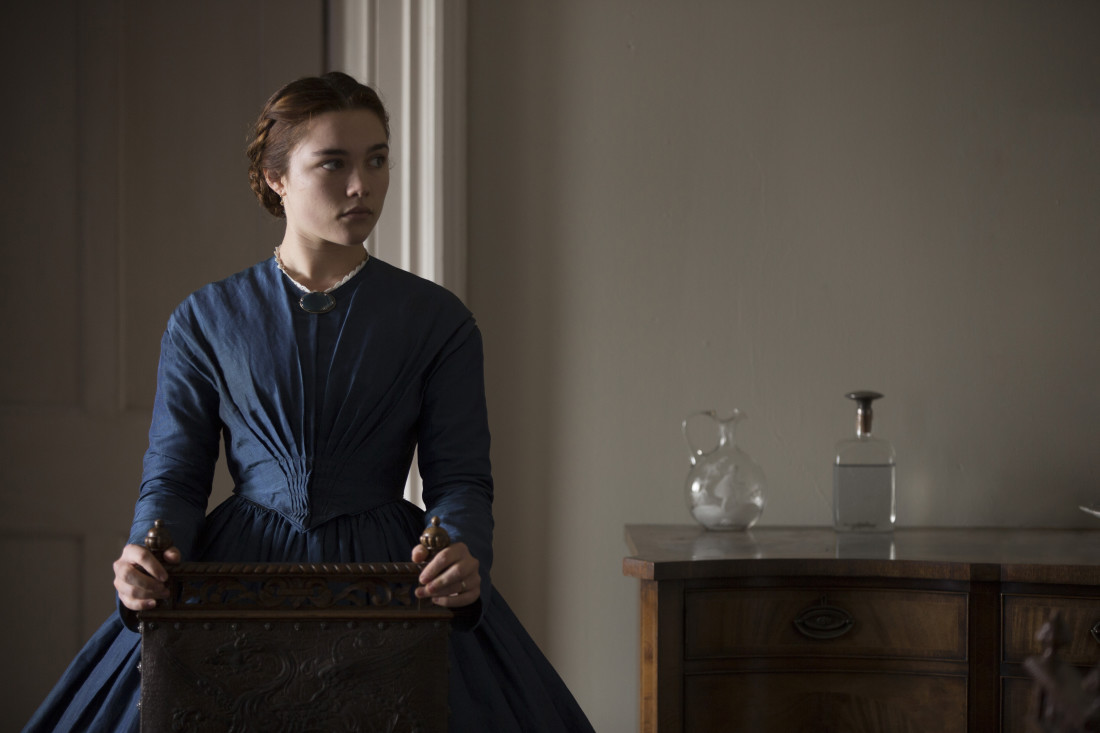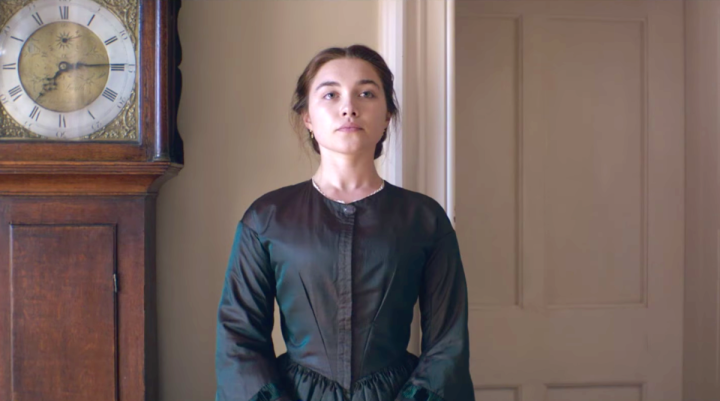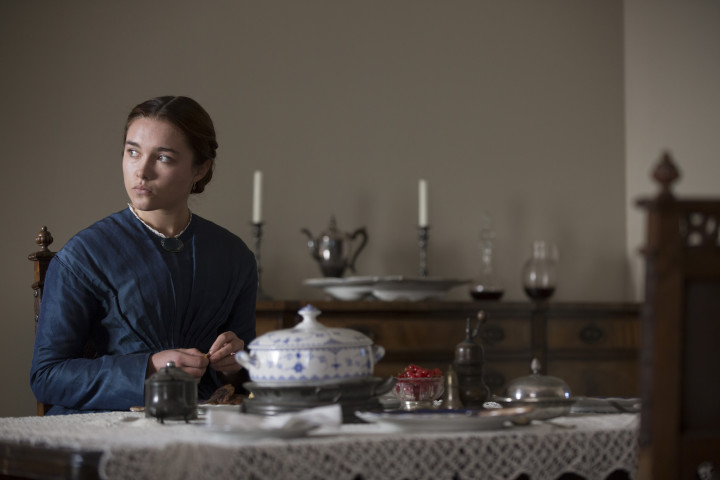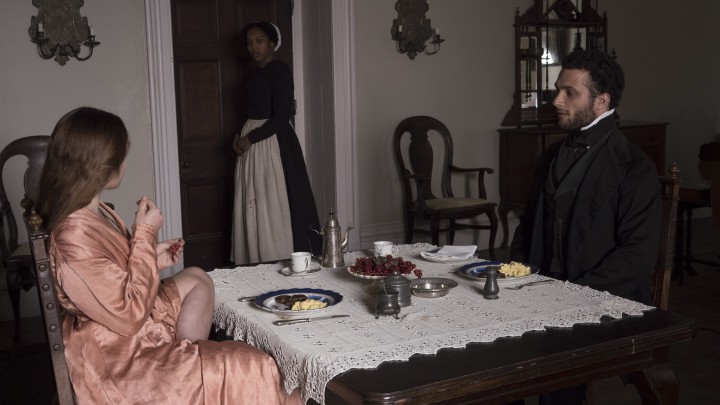If you go into William Oldroyd’s Lady Macbeth expecting a stuffy period piece (or, for that matter, anything to do with Shakespeare), you’ll likely be surprised. Maybe even pleasantly so, assuming you’re into the occasionally nasty bit of goods the film puts forth. Based on Nikolai Leskov’s novella Lady Macbeth of the Mtensk District, the movie does have its bouts of languid pacing but does enough to upend the expectations we have of period pieces to at least be curious, if not wholly convincing and put together.
The film opens with Katherine (Florence Pugh) being sold off into marriage to Alexander (Paul Hinton), with the result being a very unloving and incredibly unerotic marriage. When Alexander — at the behest of his even gruffer father, Boris (Christopher Fairbank, Guardians of the Galaxy) — is sent away on business, Katherine begins a lurid affair with the scruffy servant Sebastian (Cosmo Jarvis), something that awakens her out of her 19th-century repression.
What it does is stir something malevolent, something I won’t go into detail about for fear of spoilers, but it does not exclude murder, and very calculated murder at that. In this way, Lady Macbeth becomes a film about a woman who’s found herself finally freed, not just sexually, but within her ability how to choose the path her life takes. And having tasted this, she refuses to give it up. The film offers all of this up contextually, never spelling things out, and Pugh — giving a strangely charming and modern performance — does an excellent job showing how all this simmers just below the surface.
Generally, this hands-off approach works, but it does lend itself to offering up important plot points that come seemingly out of left field, like servant Anna’s (Naomi Ackie) sudden muteness or the surprise appearance of Alexander’s illegitimate son. Worst of all is the arc of the relationship of Katherine and Sebastian, which doesn’t hold up under any real scrutiny. When Sebastian first appears, he’s nearly torturing Anna, something that eventually leads to him forcing his way into Katherine’s bedroom. He’s violent and rude at first, but by the end of the film, he’s a simpering, guilt-ridden coward who spends the bulk of the movie being docile and cow-eyed. I suppose there’s some greater meaning in the roles of Katherine and Sebastian being switched in such a way, but it’s never really laid out, and it’s far too metaphysical for such a grounded movie. This doesn’t ruin the movie, but it doesn’t quite ring true within the confines of the film, something that stops Lady Macbeth from quite surpassing the category of “interesting.” Rated R for some disturbing violence, strong sexuality/nudity, and language. Now playing at Carolina Cinemark and Grail Moviehouse.








Before you comment
The comments section is here to provide a platform for civil dialogue on the issues we face together as a local community. Xpress is committed to offering this platform for all voices, but when the tone of the discussion gets nasty or strays off topic, we believe many people choose not to participate. Xpress editors are determined to moderate comments to ensure a constructive interchange is maintained. All comments judged not to be in keeping with the spirit of civil discourse will be removed and repeat violators will be banned. See here for our terms of service. Thank you for being part of this effort to promote respectful discussion.